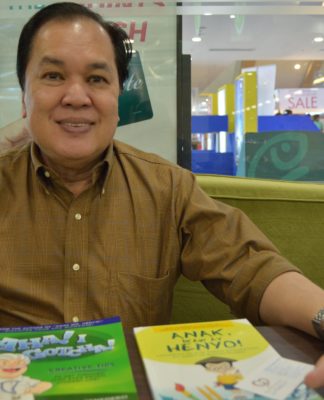WORKSHOPS cast a spell that dries up a writer’s well.
This spell is inevitable, especially for a beginning writer who is struggling to stay within the rules of creative writing. Creative writing may be somewhat about expression, but since it is deeply rooted in aesthetics and tradition, it has rules that a beginner is required to master. Indeed, only when he has mastered the rules does he earn the right to break them.
A few months have passed since my first writing workshop and I still have not shaken off this “dry” spell. I have not thought about it for a long time, but when one of my panelists last summer asked me recently how my writing is going, I gave a very lame reply of having an extended case of writer’s block.
Some people may go through writer’s block, but isn’t it a bit disturbing when the spell stretches on for quite a long time? Anyone can just imagine how it would be if someone like Gabriel Garcia Marquez experienced a bad case of it in the middle of writing One Hundred Years of Solitude. To make the picture a bit clearer, didn’t J. K. Rowling, the creator of the Harry Potter series, admit that she had writer’s block after her first book earned good reviews?
The reasons for such cases are diverse. It may be because the writer fears the expectations that may arise and fall flat once he publishes his next work. It may be because he is too cautious with the rules that he tries not to break. Or, it may be for the sheer fear of being branded as a “one-hit wonder” for the feat that he can’t manage to duplicate.
In a way, these reasons may also apply to workshop fellows, who get a first taste of literary criticism from the writing gods. The only difference is that their works are in the making and have not been published for public consumption. Just the same, there is the trauma of receiving criticism from all directions of the workshop circle. In time, however, the criticism becomes bearable, even amusing, especially when the panelists start pointing out the absurd parts of the fellows’ works.
The failure to write, therefore, must be rooted in the fear of failing to apply all the lessons from a workshop. There is such a thing as the fear of expecting these privileged to write better, having received the best advice from exemplary writers that not everyone can get. Then there is also the fear of disappointing those who have taught these lessons in the first place. What can be more guilt inducing to a writer than failing to apply what his mentors have taught him?
My literary criticism professor provided the answer to these dilemmas by simply saying that writers need to revise. Revising, she said, is the only way to get over the trauma of criticism and to eventually produce a better output. Revising may be another story, but for someone as desperate as I am, it is a start.
Only after that, maybe, can the well of a beginning creative writer start moistening once again.
***
To all the fellows of the first Varsitarian literary workshop, thank you all for making it happen. I pray that the lessons you have learned will encourage you more in pursuing this art.
As a final note, I’d like to put it in the words of a Filipino-American writer: “This, and yes,/ don’t rush. You still have (a poem) to write.”

















